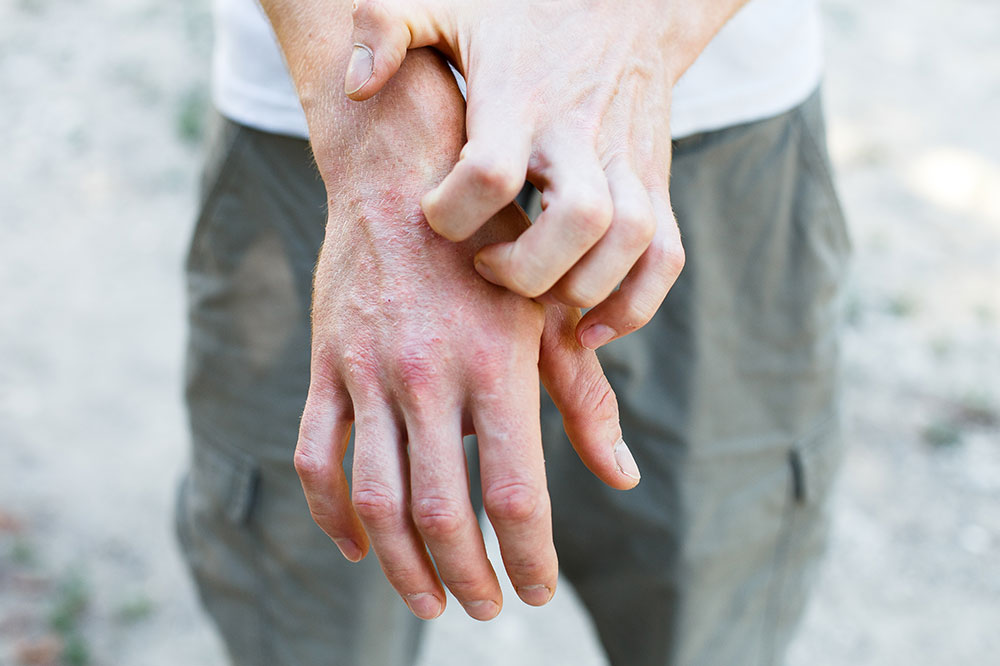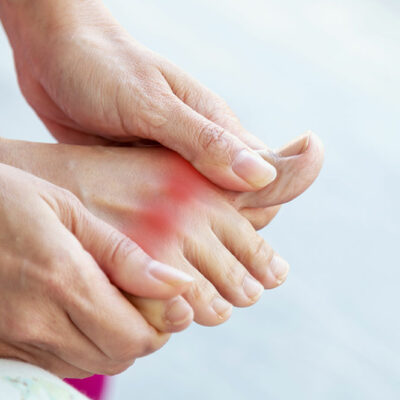
Avoid These Triggers of Atopic Dermatitis
Atopic dermatitis, widely known as eczema, is a condition that makes the skin itchy and red. It’s mainly common among children, but it could occur at any age. The most common symptom of atopic dermatitis is itching on the arms and behind the knees. This long-lasting illness is associated with flare-ups, and one must note the possible aggravators of atopic dermatitis. This article shares a list of triggers that can cause a flare-up if not controlled.
1. Hot water
While hot water may feel relaxing by relieving the symptoms of dermatitis, not many are aware that prolonged exposure to it can rip the skin of its natiral oils, causing the skin to become dry. Any dry skin is prone to itching, and for people with eczema, the intensity may increase.
2. Synthetic fabrics
Fabrics like polyester, nylon, rayon, spandex, and latex can irritate the skin and trigger an atopic dermatitis flare-up. Avoid fabrics that don’t let your skin breathe, especially during summers. Light, cotton cloth materials and layers should work perfectly well.
3. Avoid scented items
Perfumes, air fresheners, and scented candles should be avoided if you want to steer clear of an eczema flare-up. These scented products are one of the most common aggravators of atopic dermatitis. While synthetic fragrances are bad enough, some natural scents could also aggravate atopic dermatitis.
4. Quit smoking
Smoking regularly can aggravate the symptoms of atopic dermatitis. So, if you haven’t gotten around to kicking off the habit yet, this should be a good enough reason to do so now.
5. Body wash, soaps, and oils
While choosing these products, one must remember to opt for items that are made with organic ingredients. Natural products do not contain harsh chemicals, sulfate, and parabens. Using chemically infused products can irritate your sensitive skin, causing skin conditions like atopic dermatitis. Also, make sure you use commercial detergents that are mild. Discuss brands with your dermatologist to switch your current products.
6. Allergies
People with atopic dermatitis may be more sensitive to common allergies derived from pollen, pet dander, dust mites, and mold. Make a note of the allergy and the allergens that trigger the symptoms. If you are unsure of the allergens, consult your doctor at the earliest to prevent any complications.
7. Certain foods
The most common trigger of a dermatitis flare-up is milk, soy, wheat, eggs, peanuts, and yogurt, among others. Consciously make an effort to figure out what aggravates the symptoms and steer clear of those food items. If one can’t figure it out for themself, some tests help one understand which foods to avoid for preventing the onset of the condition.
8. Stress
Other than products, there are psychological factors that trigger an eczema flare-up. Emotional stress is often linked with inflammatory diseases. And most doctors suggest indulging in stress-relieving activities to help manage the symptoms. Meditation, yoga, and other relaxing techniques can also help induce better sleep.
9. Skin infections
A bacterial skin infection can make the symptoms worse. If you notice more inflamed patches and abnormal itching, it could be due to skin infections like candidiasis or staph. Discuss symptoms with a dermatologist to get to the bottom of the problem.


